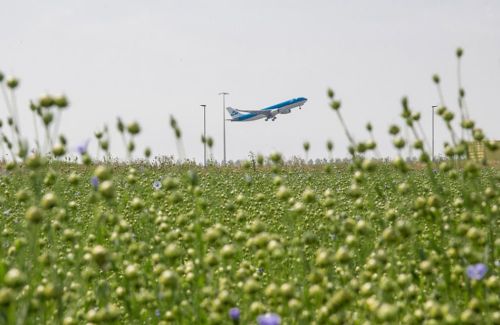Climate Agreements
Schiphol Group adheres to national, European and international climate agreements for the aviation sector. We take specific measures at our airports, but we also take the lead on both a national and international level when it comes to making aviation more sustainable. For example, the airport pressed for the establishment of ‘Smart and Sustainable’ – the plan of action to make the entire Dutch aviation sector greener.

Smart and Sustainable: plan of action for Dutch aviation
The ‘Smart and Sustainable’ project saw twenty transportation organisations and research institutes work together to accelerate the process of making aviation more sustainable. The goal is to bring the Dutch aviation sector’s CO2 emissions back down to 2005 levels by 2030. The ‘Smart and Sustainable’ plan lays down measures that will allow the sector to achieve this goal. These include optimising flight paths, using synthetic and biokerosene, electric aircraft and a shift from plane to train for short distances. All of these measures involve using less fossil fuel, which means less CO2.
Sustainable Aviation Agreement
The Dutch Draft Agreement on Sustainable Aviation was drawn up by the Ministry of Infrastructure and Water Management, the aviation sector and various research institutions in 2018. It contains agreements regarding making Dutch aviation and airports emission-free, and it translates the content of the Paris Agreement to the Dutch aviation sector. The agreement became definitive in November 2020 when the government concluded the Aviation Memorandum 2020-2050.
Paris Climate Agreement
The Paris Climate Agreement stipulates that greenhouse gas emissions, including CO2, must be brought down. By 2050, or shortly thereafter, CO2 emissions should have been completely phased out in order to limit global warming. International flights are excluded from the Paris Agreement because they are subject to separate negotiations being conducted by the International Civil Aviation Organization. The Paris Agreement does include domestic flights and ground activities, including traffic at the airport, the arrival and departure hall and cargo buildings.
European agreements
The EU Emissions Trading System has applied to airlines since 2012. Rights must be bought for aircraft to release emissions within Europe. In December 2020, the European Aviation Network decided that all incoming and outgoing European flights must achieve net-zero-carbon-emissions by 2050. European airports already made this agreement in 2019. This goal is in line with EU ambitions. All parties in the aviation sector worked on a roadmap to reach this goal together.
Global Agreements
Schiphol Group is part of various project groups that determine long-term objectives for all of the world’s airports. ACI (Airport Council International) World oversees this process. At the same time, ICAO (International Civil Aviation Organisation) is working towards net-zero CO2 for the entire international aviation sector by 2050.
What we do for sustainability
-
To and from the airport
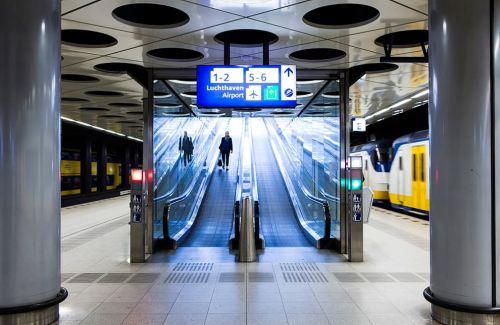
-
At the airport
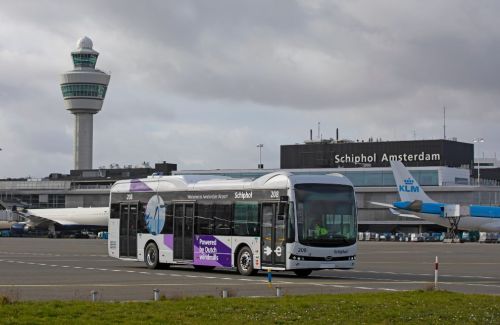
-
In the air
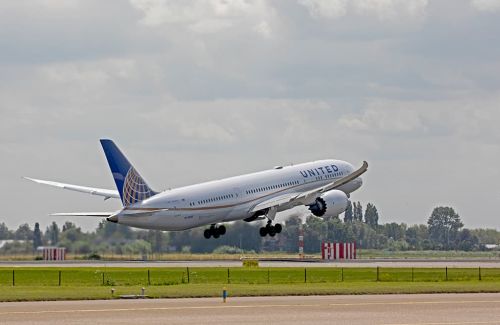
-
What can you do for the environment?
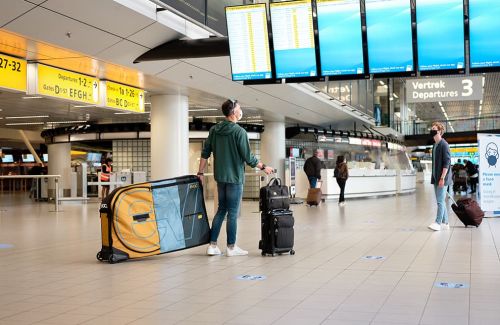
-
Sustainable living environment
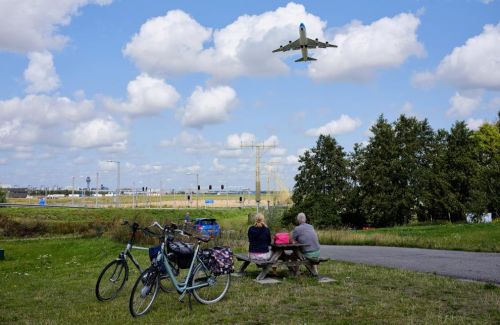
-
News
